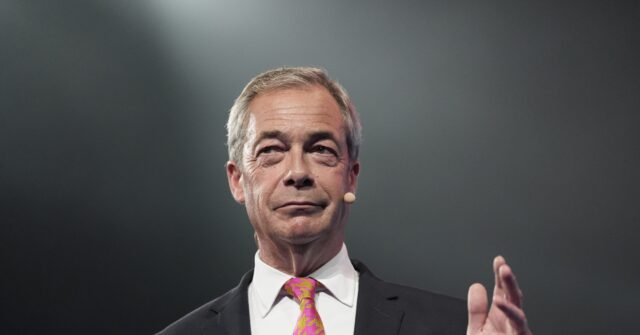Nigel Farage, the leader of Reform UK, has actively encouraged local Conservative Party councillors to defect and join his burgeoning populist party ahead of the English county council elections scheduled for May 2024. In a recent letter directed to all 1,352 Conservative councillors in England, Farage argued that the Conservative brand is fundamentally “broken” due to a series of betrayals, and he framed the opportunity to defect as a chance for local councillors to align with Reform UK, now entering its first national election campaign. Currently, Reform UK boasts only 28 local councillors, indicating that the party is in its early stages of growth despite Farage’s ambitious plans.
In an accompanying video address, Farage emphasized that countless local Conservative councillors share views more in line with Reform UK’s populist stance than with the NHS policies spearheaded by Westminster. He highlighted a critical difference, suggesting that the Conservative Party outside of Westminster does not mirror its leadership, which has come under scrutiny. Unlike the 2019 general election when the Brexit Party, led by Farage, entered into an electoral pact with Boris Johnson’s administration to facilitate the process of leaving the European Union, he now intends to run candidates in all local council elections without forming such alliances.
Farage referred to his offer as a “lifeline” for local councillors, expressing concern that many may lose their seats given the Conservative Party’s declining popularity. He poignantly remarked that after four years since the peak of Boris Johnson’s premiership, the party faces significant challenges. In his message, he stated that he wishes to provide a pathway for those councillors who truly believe in reforming the nation to join Reform UK. He clarified that the party would be selective in accepting members, stating that individuals who bring “Tory infighting” would not be welcomed.
As the Conservative Party approaches a pivotal moment with the anticipated leadership announcement—either Kemi Badenoch or Robert Jenrick slated to replace Rishi Sunak—Farage asserted that the outcome of this leadership race is irrelevant. He emphasized the notion that the Conservative brand has been significantly tarnished, citing the pattern of betrayals that has accumulated over time. The coming local elections will serve as the first substantial test for Reform UK as it strives to position itself as the dominant right-wing party in England and potentially challenge Labour for governmental control in the future.
Farage’s aspirations come off the back of a strong performance during a recent snap election, where his party garnered more than 4.1 million votes, placing third behind the Conservatives and Labour. The results showed a significant vote share of 14 percent but limited the party’s representation to only five MPs due to the first-past-the-post electoral system. Notably, Reform UK finished in second place in 98 other constituencies, indicating a promising trajectory and positioning them favorably against the backdrop of future elections.
Subsequent to the July election, Reform UK’s momentum appears unrelenting. A recent survey from More in Common revealed that public support for the party has climbed to a record-high 21 percent, reflecting increasing receptivity toward Farage’s political platform. With anticipation growing for both the upcoming county council elections and the broader political landscape leading to the 2029 general elections, Farage’s call for local Conservative councillors to join Reform UK represents a decisive move to consolidate support and challenge the traditional power dynamics within British politics.

